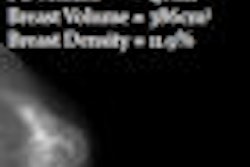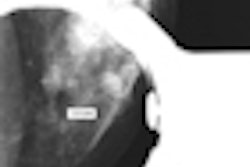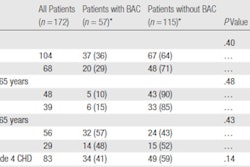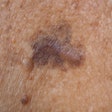Radiation exposure can alter the environment surrounding breast tissue cells so that future cells may become cancerous, according to a new study published in the online journal Breast Cancer Research.
Researchers at the U.S. Department of Energy's Lawrence Berkeley National Laboratory (LBL) in Berkeley, CA, exposed human mammary epithelial cells to nonlethal but fairly substantial doses of radiation -- 5 centi-Gray (cGy) to 200 cGy -- higher than what a woman would be exposed to during a routine mammogram. The human mammary epithelial cells were obtained from surgically discarded reduction mammoplasty and prophylactic mastectomy tissues via the University of California, San Francisco Cancer Center and the Cooperative Human Tissue Network.
"We wanted to determine whether the radiation would affect the growth of these variant, genetically vulnerable cells," said Paul Yaswen, staff scientist at LBL's life sciences division and contributor to the study.
Carcinogenic consequences of radiation exposure have been associated with genetic defects caused directly by the radiation. However, radiation can also cause "nontargeted" effects that alter cells' environment and make them vulnerable to malignancy in the future, according Yaswen.
Most human mammary epithelial cells cultured from histologically normal tissues are capable of making a tumor suppressor protein, p16 (or CDKN2A). However, a small amount of variant cells cannot make p16 and are vulnerable to genetic mutations that can result in cancer.
When cultured, most cells from histologically normal breast tissue stop dividing after 10 to 20 doublings, and produce the p16 tumor suppressor protein. However, in variant cells unable to make this tumor suppressor, cell division continues and the variant cells become susceptible to mutations, Yaswen said.
"We took these cells and exposed them to various types and doses of radiation. What we found was that the radiation preferentially inhibited the good cells -- those able to make the p16 protein -- from proliferating and allowed the bad cells to proliferate at a faster rate," he said.
Yaswen's team found the results surprising.
"We had associated radiation with decreased cell growth, thinking that [healthy and unhealthy] cells were equally susceptible to the effects of radiation," he said. "But our study shows that cells vary in their susceptibility."
In a woman whose breast tissue had these cell variants that proliferate and can become cancer, exposure to radiation carries higher risk, Yaswen said. Although the amount of radiation associated with regular screening mammograms is small, and not likely to be a risk factor, the amount of radiation associated with other procedures, such as CT scans or radiotherapy, could put a woman at increased risk.
"Our study does not indicate that women should avoid screening mammography," he said. "But women with this susceptibility could be more vulnerable to the radiation in advanced imaging procedures."
By Kate Madden Yee
AuntMinnie.com staff writer
May 18, 2010
Related Reading
Societies to host meeting on radiation safety, April 16, 2010
Boost RT training to maintain safety standards, speakers tell FDA, April 1, 2010
FDA hearings rise above medical radiation rhetoric, March 31, 2010
VC grilled in radiation hearings, March 31, 2010
Radiology gears up for FDA radiation hearings, March 30, 2010
Copyright © 2010 AuntMinnie.com



















